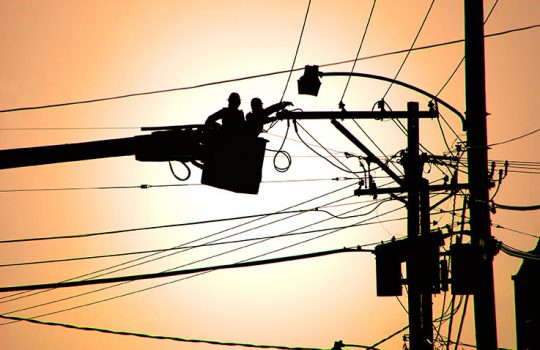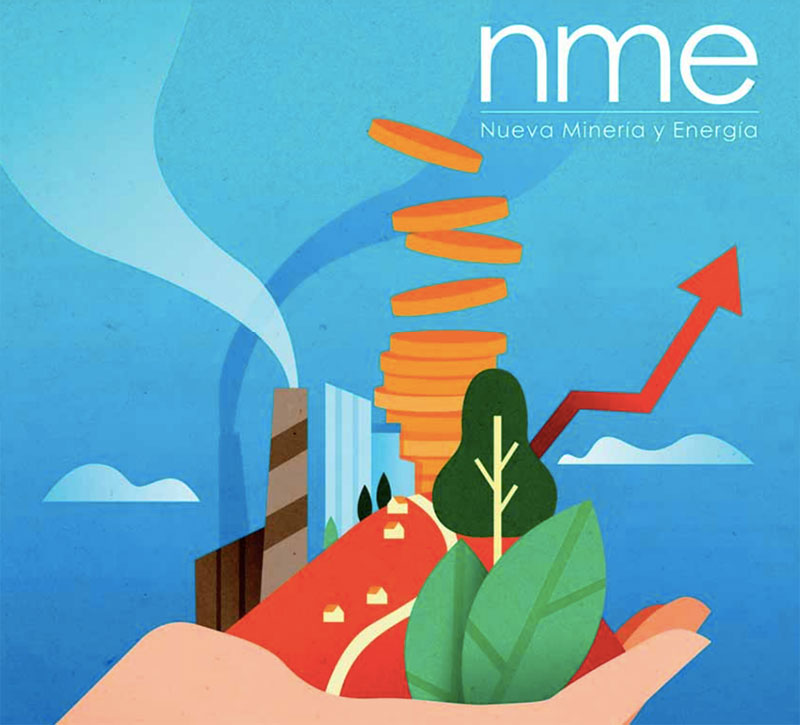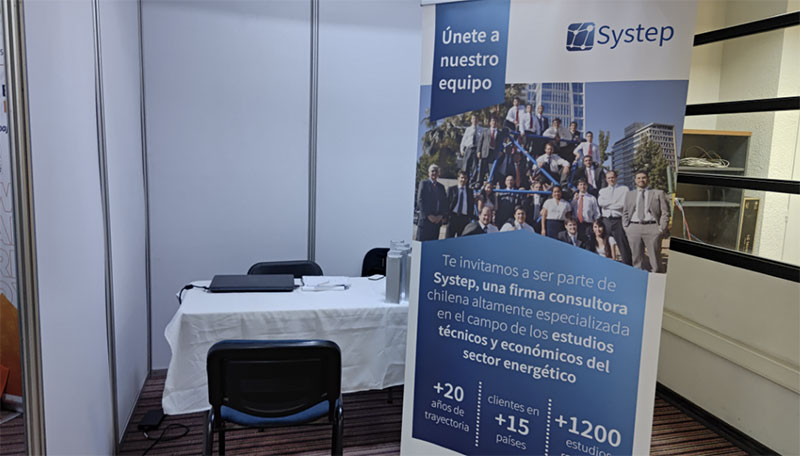
To date, there have already been three major negative events, two of which have resulted in outages for nearly 400,000 customers.
2017: the most difficult year in terms of electricity distribution.
If distributors did not get off to a good start in the first half of the year, with the power outages caused by the forest fires, the second half of the year has been worse.
So far this year there have been three major negative events for the industry: the fires that occurred in the central-southern part of the country in February, and the storms of June and July. The latter, with the characteristic of an unusual snowfall.
The last two events produced peaks in outages of 430 thousand and 390 thousand customers, respectively. Thus, they already anticipate a rise in power outage rates, at least in relation to 2016 when the countrywide average was 5.8 hours. The figure rises to 7.9 hours if force majeure events are excluded.
However, the government has been clear: neither rain nor snow are events of this nature, and has reiterated that the cleaning of the safety strips of the distribution lines is the responsibility of the distribution companies.
“The law is very specific in stating that the responsibility for the delivery of a continuous and safe supply is the responsibility of the electric companies, it also says that maintenance must be carried out on the power lines to prevent outages from occurring. Part of this maintenance is to clear the area around the power lines of branches and trees”, commented Luis Avila, Superintendent of Electricity and Fuels, to Radio ADN.
However, experts are divided on how the authority should classify such events, which will be crucial when determining the penalties to be imposed. Fines can reach up to 10,000 Annual Tax Units, about Ch$5,608 million (US$8.4 million).
“I don’t know how the authorities are going to classify these two most severe events; they are undoubtedly atypical events. In my experience I have had to deal with about 100 emergency plans, of which I remember 10 very severe ones: what happened this week is probably more severe than any I can remember,” commented Pedro Miguel, director of the consulting firm Systep.
While the former CNE and energy consultant, María Isabel González, has a different opinion. “I would not say that this could be force majeure, here we think we are a developed country, we compare ourselves with the OECD, in many countries there are hurricanes or snowstorms, and therefore we should be prepared for situations like this. The responsibilities undoubtedly fall mostly on the distribution companies. They have the obligation, and it is considered in the electricity tariff, that they have to prune the trees”.
However, not everyone agrees with this statement. For example, Empresas Eléctricas, the association that groups the country’s main distribution companies, including ENEL Distribución – formerly Chilectra – and CGE, believes that the law does not settle these responsibilities.
“Indeed, the issue of vegetation management; the different responsibilities regarding vegetation are pending, which we have to take care of as a society. It is an issue that is affecting the reality of our customers. What is a fact, if one compares the resources that are delivered in general for vegetation management versus those that are used, the companies have always spent more than they should, but for us this is not the focus; this is how we agree on the responsibilities so that we can order this issue, which today has become one of the most affecting issues in the service to customers”, explained Rodrigo Castillo, executive director of the guild.
This view coincides with that of the lawyer Fernando Abara, founding director of Abara & Cía., who believes that in a modification to the regulations governing the distribution market – currently being drafted – more powers should be given to the electricity regulator to facilitate clean-up work. As he explained, there are experiences in which the owners of the properties themselves and the municipalities resist these initiatives, so the responsibility would not always fall on the companies. “The problems that the distributors and transmitters also have is the access to the properties to carry out the maintenance”, he commented in this respect.
The ministers of the political committee and the presidents of the New Majority parties also discussed yesterday the need to promote a change in the law on electric utilities. The conglomerate asked La Moneda to include the discussion of this legal initiative in the agenda, in order to provide more security to the distribution system and generate compensation for affected customers.
Municipalities and consumer organizations prepare to file class action lawsuits
The mayor of Las Condes, Joaquín Lavín, was one of the communal authorities who lashed out most against ENEL. The mayor anticipated that legal action would be taken in view of the power outages which, in some sectors, extended throughout the weekend. Through the Municipality’s Twitter account, those affected were called to join the class action lawsuit that will be filed. A similar action was taken in Providencia, a municipality that published on its web page the sites for registering adherents.
In Ñuñoa, they followed the same path and reportedly collected more than 300 signatures in just two hours. Similarly, in Lo Barnechea, 700 residents had signed up to file a joint action at press time.
These initiatives are not the first to be taken by the municipality against ENEL: the residents of Cerro Navia and Estación Central filed collective appeals after the supply cuts at the end of June.
The mayors are not the only ones coordinating these actions. The president of Conadecus, Hernán Calderón, said that they are studying legal action. “We will try to represent all those affected by this outage.” In this sense, the leader also remarked that the Superintendency’s decision is key, since if it determines that it is not the company’s responsibility, there is less chance of success.
Calderón also emphasized that it is also necessary to analyze whether the company will make the compensation as required by law. This is because the amount to be reimbursed is four times the average consumption, “and we believe that this is insufficient, because the damage is much greater,” he added, citing the case of SMEs as an example. “They can’t work and they also lose what they have in storage. All of them can sue collectively, because they are end consumers,” he said.
Effect on agriculture: lemons and avocados in the sights of growers
The agricultural sector awaited the snowfall of this weekend with concern. Although the event brought with it low temperatures, so far there have been no serious situations at a general level. According to Juan Pablo Matte, secretary general of the National Society of Agriculture, this would have occurred because most producers would have taken precautions in the face of snow and frost announcements. Matte explains that the main crops at this time of the season are citrus and avocado, together with vegetables, being these the goods at risk at this time of the year. The other fruit trees are in the resting phase, so Matte said that there has not been widespread damage, since after the snowfall there was an influx of winds that mitigated the effect of the frost on the plantations.
Lemons began to register price declines only a few weeks ago, after a bullish streak that lasted the first part of the year. Despite this, Matte says that for the moment there is peace of mind among farmers dedicated to this fruit. Thus, it details that early harvesting would only take place if ripening reaches its optimum level.
However, he emphasizes that “damage is not only caused by a particular day of snowfall, but also by the accumulation of days with temperatures below zero, causing a weakening of the plant and that can cause damage. We must be monitoring and checking with farmers what has been happening in the coming days.
Matte noted that, although there will continue to be concerns about weather conditions and the impact on crops for the remainder of the winter, the agricultural sector is optimistic about the amount of water that has accumulated. “That gives us peace of mind for the summer growing season,” he said.
The president of Fedecarne, Carlos González, said that some farmers in the foothills between the sixth and eighth regions had difficulties, even though most of them had stockpiled fodder and concentrated feed in advance, given the impossibility for their cattle to graze in pastures covered by snow.
Companies warn of high cost of undergrounding cables
According to Empresas Eléctricas, the investment to bury electric distribution cables would be between three and five times higher than traditional wiring. The executive director of the guild, Rodrigo Castillo, indicated during his participation in the Cigré seminar “Regulation: Advances in the Regulation of Electricity Transmission and Distribution” held on Monday, that he considers it necessary to open the discussion on this subject. This is due to the fact that one of its characteristics is that it provides greater security to the electricity supply, at the expense of a higher cost.
The debate comes after several city councilors of the Metropolitan Region called on the authorities and the companies to implement this type of solution in order to avoid new massive power outages.
Although the government also welcomed the idea, the SEC warned that although this solution is possible, it will have a significant impact on electricity rates.
However, Enel Distribución, formerly Chilectra, was more receptive to the idea. “Within the definitions of the standards that we have to manage there is a question and discussion whether those standards are sufficient for the expectations and requirements that the power supply requires,” said the company’s general manager Andreas Gebhardt.
Heaters and stoves are top sellers over the weekend
Power outages and store closures were some of the effects that the main supermarkets and retailers had to face due to the bad weather system that affected the Metropolitan Region and the southern part of the country this weekend.
The industry clarified that although most of the trade did not raise any type of alert, there were special situations. An example of this was the closing of stores and supermarkets for some hours, due to the lack of electricity supplies. However, this would not affect its accounts in negative terms. On the contrary.
Cencosud commented that they were prepared to receive a high number of visitors in all their centers. They also assure that there were no inconveniences in the operation of their shopping centers, since they have their own autonomous electricity generators and water tanks that supply their different malls.
They also pointed out that after the snowfall of the weekend, there were positive effects: visits to Sky Costanera increased by 30% compared to a normal weekend.
For its part, Falabella indicates that, in view of the low temperatures, it has prepared a wide range of products to combat the cold, ranging from special clothing for the weather to stoves.
In this line, they point out that heaters, stoves, underblankets and changing rooms were the products that sold the most during the weekend.
Although Falabella clarifies that it is already making a seasonal change to spring garments, they also mention that customers are still looking for winter clothing, so the transition to the next season will be gradual, in order to offer products in line with the needs of consumers.
Each Twitter user was exposed 61 times to posts about Enel
The unusual snowfall that affected the central part of the country over the weekend left thousands of homes without electricity supply, mainly in the eastern districts of Santiago, mainly in Las Condes, La Reina, Providencia and Ñuñoa, causing great inconvenience to customers. This was felt mainly in the social networks with massive criticism of ENEL, the company in charge of electricity supply in 33 districts of the Metropolitan Region.
Thus, according to data provided by the digital agency Jelly, there were more than 168 thousand tweets issued by 96 thousand people about the power outages. These began in the early hours of Saturday morning and in some sectors of the capital they continued until yesterday.
According to the study, the reach of these messages reached some 307 million Twitter accounts. In this regard, considering that in Chile there are some 5 million Twitter accounts – according to data from the digital agency – each user of this platform was exposed more than 61 times to messages about ENEL.
The analysis also states that in the midst of the critical tone of the messages, the figure of the mayor of Las Condes, Joaquín Lavín, stood out. The mayor used a strategy to defend the inhabitants of his commune and even announced a class action lawsuit against the company. This last topic had more than 10 thousand mentions on the platform.





